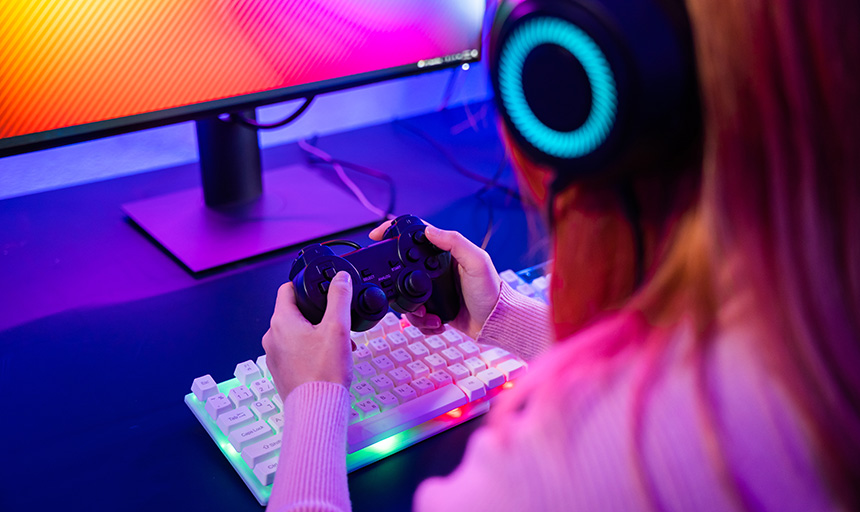
You whisper it to yourself over and over: There’s no such thing as monsters. But when a beast lunges from the shadows on a movie screen or game console, you still jump out of your seat. It seemed so dang real!
The question of just how real was the focus of a project that Eliza Bain ’24 pursued in the lab of Assistant Professor Lauren Kennedy-Metz. Her project investigated whether VR in video games was immersive enough to trigger a real physiological, stress response. Hooked up to monitors that tracked heart rates and respiration, two groups of subjects — one on VR and one on traditional interfaces — jumped into the ghost-hunting horror game “Phasmophobia.”
Their fright responses could tell us more about this increasingly versatile, virtual resource that scientists are also starting to employ in training simulators, mental health therapies and other real-world needs. Bain was invited to present her work at an international assembly of the Association for Applied Psychophysiology and Biofeedback .
For her, the project also tapped into a passion for chasing answers to the big questions facing science. “This was my first time designing my own experiment, and I realized that I just love it so much,” she said. “I want to go on to grad school and continue doing research.”
Bain is now pursuing a master's in experimential psychology at Radford University.